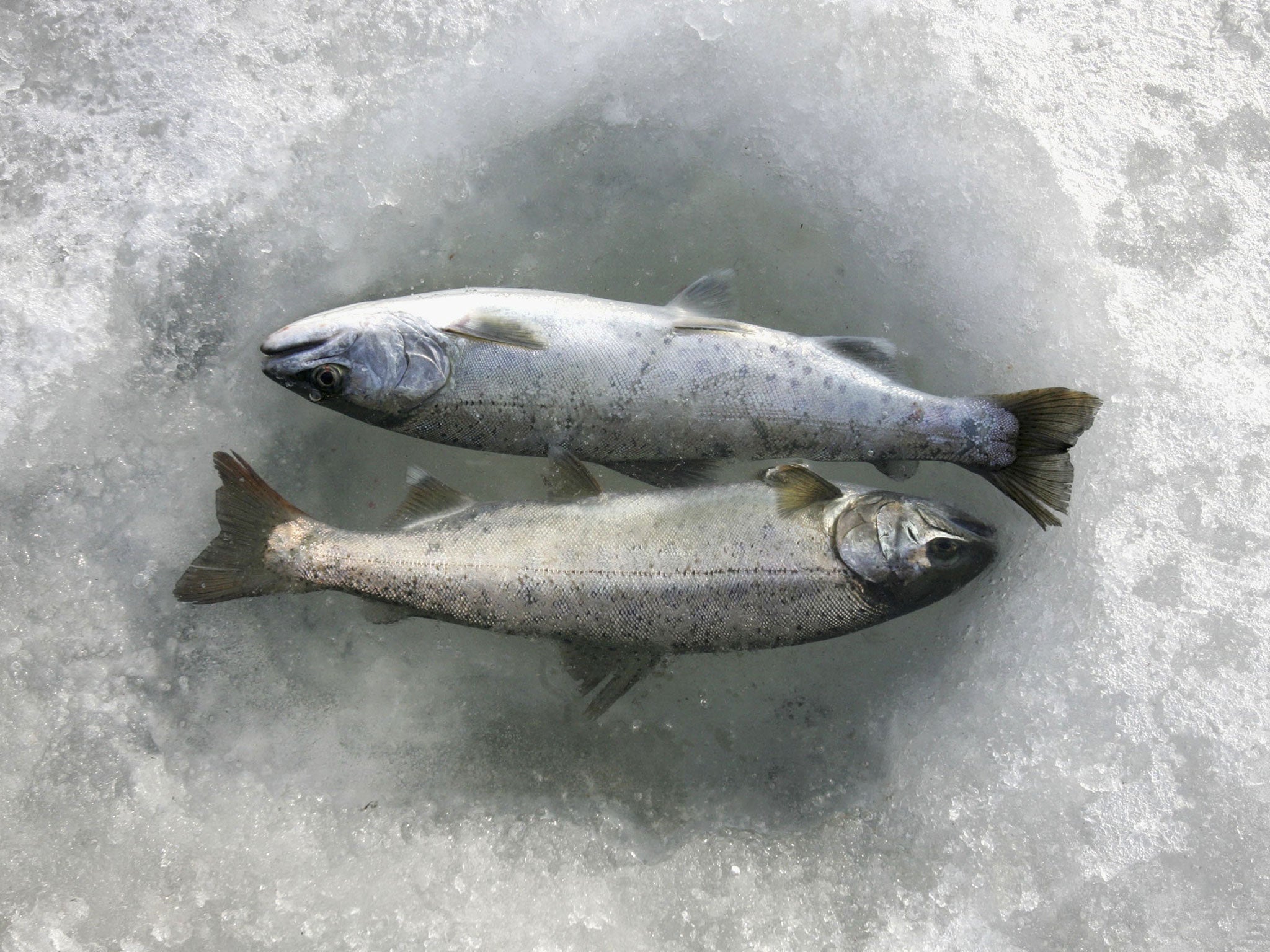Spare us the description: really good food can speak for itself
If that trout really is the best fillet ever, then it doesn't need any glorification in words. Can't restaurateurs just call a fish a fish?

It was the greatest trout fillet that the world had ever known. The sort of trout one could build a life with; so beautiful, so shapely, so very deft at swimming up rivers. Discerning, too: a thing so well-dressed it could stop traffic and it only ever lunched at The Wolseley. Or, at least, I assume that slice of trout was all those things, I mean, it must have been, because this week I received an invitation to meet it, which ran as follows:
"… cordially invites you and A PLUS ONE [their caps] to join us in celebration as we unveil... the world's most exclusive smoked trout fillet."
The last time I received an invitation inviting me somewhere "cordially", it came from the French Embassy. But perhaps they felt that baroque style was in order given the eminence of the trout. Either way, that invitation is just one of approximately 758 other incidences I have noticed of a weird infestation in the world of food: the over-blown description.
You see it on menus all the time: the duck I ordered is going to be “mouth-watering”, “exotic”, even once, in an upwardly mobile East End pub, “peerless”. I can tell you now that the particular duck in question had very many peers, most of whom were considerably more “mouth-watering”.
It is similar to what Dan Jurafsky noted in his book The Language of Food: A Linguist Reads The Menu. In his study of 6,500 restaurant menus, he noted that every increase in the average length of words used to describe a dish came hand in hand with a 42p price increase. Though, as he points out, this is only the case in middle-of-the-road or cheap joints – where you can often expect it to be explicitly spelled out that the sole you are about to eat is “authentic” and “fresh”, leading you to perhaps conclude that the other fish on the menu is none of those things.
At places with Michelin stars and Maitre D’s and cloakroom attendants, they keep it down to the bare minimum, just noting the ingredients, separated by commas. The thing is, though, that most of us aren’t daily falling out of the Savoy Grill – and so we drown in the verbosity, like an ortolan in verbal cognac.
The use of empty words is a sort of tic, in the same vein as the 19th-century and early 20th-century vogue of calling your dish something French, such as duck à l’orange, fruits de dessert – a trend mercilessly sent-up by Peter Cook in the character of Sir Arthur Streeb-Greebling, who was memorably planning to open a restaurant in the Yorkshire Moors (“plenty of parking”), which would serve a pêche à la frog and, of course, frog à la pêche. And that was in the early 1960s.
The whole business is the worst sort of faux sophistication, a sleight of hand that seeks to crowd out any question as to the quality of the food with empty words – and so flat-footedly used.
The restaurateur’s thought is this: if I use the word exclusive, or artisan, or bespoke or even super-tasty, then diners won’t think the food is hackneyed, dull, tasteless and with the approximate texture of wet cardboard.
It is using words as they are meant to be used, to cajole, to convince, to project a view– which is fine if you are a demagogue, but not so much if you are purveyor of fresh trout.
Subscribe to Independent Premium to bookmark this article
Want to bookmark your favourite articles and stories to read or reference later? Start your Independent Premium subscription today.

Join our commenting forum
Join thought-provoking conversations, follow other Independent readers and see their replies